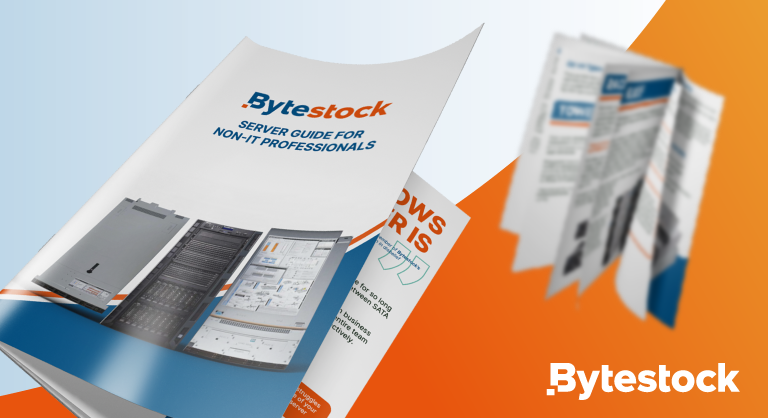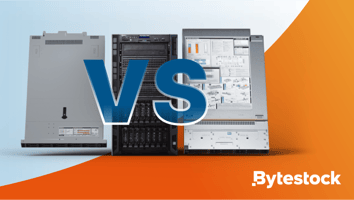A server or server network makes sharing information between locations and colleagues incredibly...
A Guide to Purchasing a Server for a Small Business

Choosing a server to meet the ever-growing demands of modern business can be a challenge. With so many decisions to make, such as storage capacity, processor type, and the need for SSDs versus HDDs, the process can feel overwhelming. While we can't make all these decisions for you, we can certainly guide you through the process and help you make the best choice.
Determining Your Server Needs
First, it's essential to identify what you need the server for. This might seem obvious, but many people purchase servers without fully understanding their requirements.
- File Storage: Do you need a server for file storage in a small office?
- Web Hosting: Are you looking to host your company’s website?
- Development Environment: Does your IT Manager need a dedicated environment for testing products?
Many businesses are turning to cloud services instead of in-house physical servers. Cloud services offer the benefit of no maintenance but come with licence fees. On the other hand, on-site servers avoid these fees but require maintenance. Some companies opt for a blend of both, using in-house servers supplemented by cloud setups.
Key Considerations
Once you know why you need a server, you can make several key decisions about the machine itself.
Server Footprints
Servers come in different configurations: Tower Servers and Rack Servers (including blade or modular servers that fit inside a rackmount tower). Each has its pros and cons.
- Tower Servers: These free-standing units, like the Dell PowerEdge T640, can be placed anywhere in a cool, dry space in your office or warehouse. However, multiple tower servers can take up a lot of space.
- Rack Servers: Rack-Mounted Servers, such as the Dell PowerEdge R440, require mounting in a server rack, which takes up more space than a tower server. The benefit is that you can place multiple servers in the space that would be taken up by several tower servers.
Consider whether you will need only a single server or anticipate growth requiring multiple servers. Smaller businesses may need just one server, while larger businesses or those looking to future-proof their IT infrastructure may prefer rack servers.
Network Attached Storage (NAS) vs. Full-Blown Servers
For simple file storage and sharing within your company, a Network Attached Storage (NAS) device may suffice. However, if you need to run programs like email or provide remote access, a more robust server system is necessary.
Storage Requirements
Decide how much processing power and RAM you need and focus on your storage requirements. Whether you choose a rack or tower server, you'll need to consider the number of bays and the size of the drives. For high performance, a 2.5” form factor with SSDs may be ideal. For larger storage sizes, a 3.5” form factor with high-capacity HDDs (6TB, 8TB, or 10TB) may be more affordable.
Power and Resource Requirements
Select a server that meets your business needs without overspending. For simple file storage, a basic server with low spec hardware may suffice. For remote access or more intensive tasks, a server with higher spec hardware is necessary.
Virtualisation
Virtualisation allows you to run multiple instances on a server, each serving a specific purpose. This requires plenty of RAM and significant processing power.
Redundancy
Servers are designed to run 24/7, but hardware can fail. Consider purchasing a server that allows for hot-swapping, enabling you to replace hard drives and power supplies without shutting down the server.
Need More Information?
Purchasing a server is a crucial decision for any business. At Bytestock, we’re here to help with any questions or enquiries you may have, from the early stages of the buying process to the quote and payment stage. We can advise you on all the components you need to fit your business requirements. Contact us today for expert guidance and support in choosing the perfect server for your needs.





